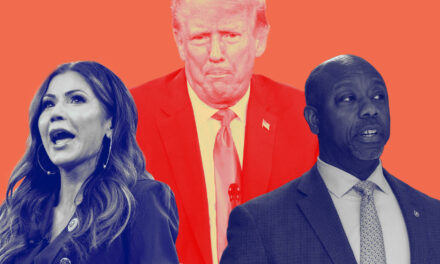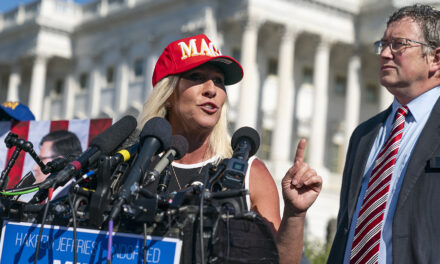We support our Publishers and Content Creators. You can view this story on their website by CLICKING HERE.
The views expressed by contributors are their own and not the view of The Hill
FILE – The list of Southwest Airlines flights cancelled grows at Phoenix Sky Harbor International Airport in Phoenix, Dec. 29, 2022. The Flight Compensation Regulation in the European Union requires airlines to compensate passengers an amount from 250 to 600 euros for cancellations or delays of at least two hours. This regulation has largely helped…
The nation’s air system is a critical infrastructure for facilitating economic development, supporting the movement of people and goods.
For air travelers, they have become accustomed to dealing with the endless stream of rules and restrictions that airlines impose on tickets, much of which is contained in their voluminous and mostly incomprehensible Contract of Carriage (which all travelers are subject to, yet few, if any, have read). For example, the United Airlines Contract of Carriage is over 34,000 words — just a few thousand words short of what defines a novel. This has created an adversarial relationship between airlines and passengers.
To give passengers greater leverage with airlines, the United States Department of Transportation (USDOT) is teaming with 18 state attorneys general to create the Airline Passenger Protection Partnership. Its primary role will be to expand the government groups available to investigate passenger complaints against airlines and ticket agents.
The USDOT also announced an automated system for passengers to receive refunds for canceled flight tickets as well as fees paid for ancillary services not delivered, including fees paid for nonfunctioning wi-fi.
This all sounds like a good thing for passengers, who are often at the mercy of airlines when flights go awry. Yet top-down structures often end up doing more harm than good, creating an even more adversarial environment rather than one that would benefit from cooperation, not conflict.
Air travel is risky business. This is not because flights themselves are risky (air travel is a very safe mode of travel) but because the business of operating an airline is subject to numerous factors that are outside the control of the airlines. These include weather uncertainty, Federal Aviation Administration rules and regulations (including air traffic control), personnel availability, training and scheduling, fuel costs and economic factors that drive demand. Yet to move people and products efficiently around the nation (and the world) demands a safe and reliable air system.
All these risks mean that the likelihood that something will go wrong on any given day for some passengers is high. No matter what the cause of such disruptions, airlines must bear the brunt of the criticism and responsibility, given that they are delivering the service to passengers.
At the same time, to remain in business, airlines must be profitable.
The Airline Passenger Protection Partnership contains many worthy objectives. For example, “Investigate airline complaints for unfair or deceptive practices” should be a given. However, what entails “unfair or deceptive practices”?
Airlines use dynamic pricing models that adjust prices for tickets on a given route based on supply of seats, demand and time until departure. They can also track how often people are searching for a specific route, providing input into their pricing models. Is this “unfair or deceptive”?
With an abundance of artificial intelligence tools at their disposable, this does give airlines a pricing advantage. Yet such tools give every online retailer the same advantage.
What the USDOT is likely thinking about is for airlines to be held accountable for day-to-day operations, with the Airline Passenger Protection Partnership growing the number of government entities available to address issues that may not serve the best interests of passengers.
Yet the USDOT already has “Fly Rights: A Consumer Guide to Air Travel.” What the Airline Passenger Protection Partnership may do is provide more avenues to enforce such rights and give flyers more ways to seek assistance.
The challenge is that such top-down mechanisms further grow an adversarial environment between the USDOT and the airlines, with flyers caught in the crossfire.
For example, if a flight is canceled, passengers will automatically get a refund, leaving them to find alternative transportation, often at last-minute ticket prices on other airlines. The final cost to the traveler will most certainly be much higher than the amount they receive in a refund.
Instead of dictating to the airlines what they should deliver, would it be more advantageous to ask the airlines what they can deliver, and when they fall short, how they can respond in real time? This gives airlines more ownership of the policies that they adhere to, and what they can deliver when their services fall short.
Much like the “I cut, you choose” cake cutting game played by children, perhaps the airlines can “cut” a set of options for travelers, with the USDOT “choosing” which to implement. The roles of the airlines and the USDOT can alternatively be reversed. This gives both airlines and the USDOT some ownership in the rights that flyers pay for deserve. It would also relinquish the need for individual passengers to report every incident, empowering airlines to serve as their own watchdog.

This may sound idealistic, yet the risk (and penalties) of not reporting violations would be sufficient to keep airlines in line. The December 2022 meltdown at Southwest Airlines shows that small issues can be hidden, but major disruptions cannot be kept out of the public eye.
The takeaway from the Airline Passenger Protection Partnership is that the USDOT wants more eyes on the airlines, and more help to keep them in line. Yet without a better set of airline policies that all stakeholders buy into, there will never be a sufficiently large government body that can catch all airline hiccups. Playing “whack-a-mole” with the airlines makes no sense, unless the airlines are willing to agree to the same rules.
Sheldon H. Jacobson, Ph.D., is a professor in computer science at the University of Illinois Urbana-Champaign’s. A data scientist, he applies his expertise in data-driven risk-based decision-making to evaluate and inform public policy.
air travel
Airline Passenger Protection Partnership
cancel
delay
Department of Transportation
flights
Copyright 2024 Nexstar Media Inc. All rights reserved. This material may not be published, broadcast, rewritten, or redistributed.

 Conservative
Conservative  Search
Search Trending
Trending Current News
Current News 





